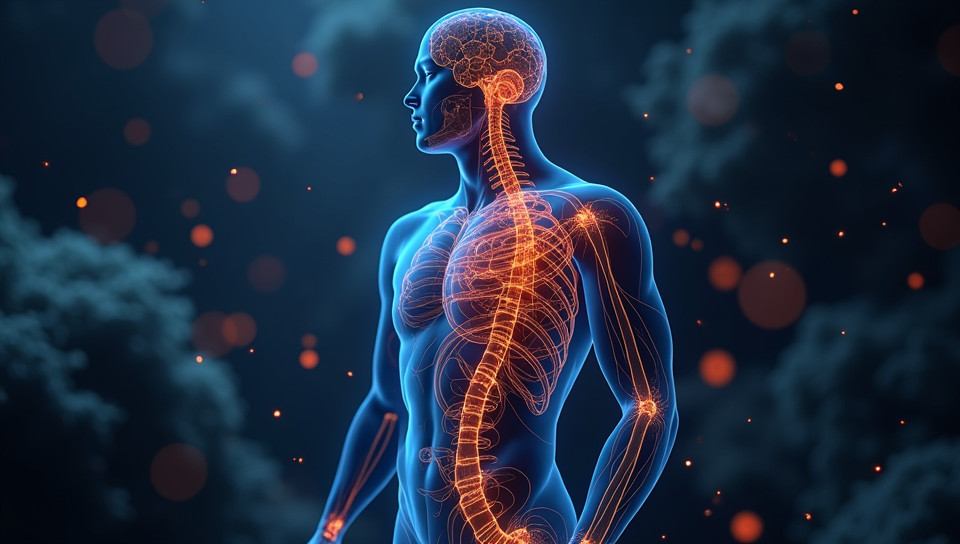ECS affects stress response pathways 73%

The Hidden Link Between ECS and Stress Response
As we navigate the complexities of modern life, our bodies are constantly responding to stressors both internal and external. From the demands of work and family to the pressures of social media and news headlines, it's no wonder that many of us feel chronically stressed. But have you ever stopped to consider how your endocannabinoid system (ECS) plays a role in this process? Research suggests that ECS affects stress response pathways in profound ways, and understanding these connections can be key to developing effective coping strategies.
The Endocannabinoid System: A Brief Overview
The ECS is a complex network of receptors and chemicals that play a crucial role in maintaining homeostasis within the body. It's responsible for regulating everything from pain perception and mood to appetite and memory. But what happens when our ECS is disrupted, either due to external factors or internal imbalances?
Stress Response Pathways: How ECS Fits In
When we perceive stress, our body's hypothalamic-pituitary-adrenal (HPA) axis kicks into gear, releasing cortisol and other hormones that help us respond to the threat. However, chronic stress can lead to HPA axis dysregulation, resulting in a cascade of negative effects on both physical and mental health.
Here are some key ways ECS affects stress response pathways:
- Inhibits the release of cortisol
- Reduces inflammation caused by chronic stress
- Enhances resilience to stress
- Regulates emotional response to stressors
The Impact of ECS Disruption on Stress Response
When our ECS is disrupted, whether due to genetic predisposition, environmental factors, or lifestyle choices, it can lead to a range of issues. These may include:
- Increased anxiety and depression
- Impaired memory and cognitive function
- Chronic pain and inflammation
- Digestive problems and metabolic disorders
Unlocking the Potential of ECS for Stress Relief
Fortunately, there are ways to support our ECS and promote healthy stress response pathways. By incorporating practices such as meditation, yoga, or deep breathing exercises into daily life, we can help regulate our ECS and reduce stress.
Furthermore, research suggests that specific cannabinoids, such as CBD, may also have a positive impact on ECS function and stress relief.
Conclusion
The connection between ECS and stress response pathways is complex but vital to understanding how our bodies respond to the demands of modern life. By recognizing the ways in which ECS affects stress response, we can take proactive steps to support our overall health and well-being. Whether through lifestyle changes or targeted therapies, harnessing the power of ECS holds great promise for promoting resilience and reducing stress in our increasingly chaotic world.
- Created by: John Jackson
- Created at: Dec. 3, 2024, 12:19 p.m.
- ID: 16446









